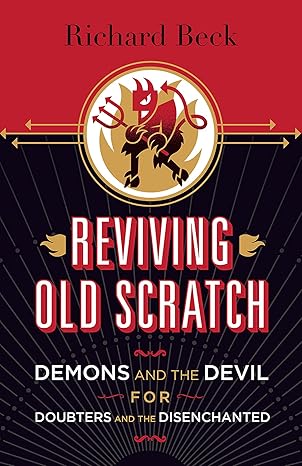This Tuesday, we are wrapping up Richard Beck’s book Reviving Old Scratch: Demons and the Devil for Doubters and the Disenchanted. Please read Chapter 15, “Turning the World Upside Down,” and Chapter 16, “Satan Interrupted.” The theme of Chapter 15 is the intimate connection between the spiritual and the economic.
Exorcisms and Economics: (pp.161-66)
Beck begins this chapter with a discussion of Paul’s experience in Phillipi and Ephesus. If you have time before Tuesday, please read Acts 16 (Paul in Phillipi) and Acts 19 (Paul in Ephesus). In Phillipi, Paul conducts an exorcism on a fortune-telling slave girl. The exorcism helps the slave-girl but interferes with the economics of her owners.
Something similar happens in Ephesus. There, Paul once again conducts an exorcism, which leads to the conversion of a significant portion of the population. These people no longer need to buy trinkets of Artemis of Ephesus, the local pagan cult. A silversmith connected to the temple objects to Paul’s actions because no one is now buying his wares.
In both Philippi and Ephesus, Paul’s spiritual warfare adversely affects someone’s economic situation. The complaint from both the slaveowners and the tricket makers is not that Paul is harming their economics. Why should the average citizen care if Paul’s actions adversely affect someone else’s business? Instead, the objections are couched in terms of ‘god and country.’ In Phillipi, the girl’s owners accuse Paul of importing foreign Jewish customs which no real Roman would adopt. And in Ephesus, the temple artisans accuse Paul of attacking Artemis of Ephesus herself. The political and economic are intertwined with the spiritual.
As a result of doing battle with the spiritual forces, Paul also did battle with civic and economic forces. Beck wants us to recognize that the spiritual and the economic/political forces in the world are inextricably linked. Spiritual warfare is also economic warfare. Exocisms and Economics go together.
Pledging Allegiance: (pp. 166-70)
Ultimately, the question posed by the people of Phillipi and Ephasus is “To whom or to what do we pledge allegiance?” As Beck has discussed before, Jesus was not much of a political activist. When Jesus says in the Sermon on the Mount to love your enemies and pray for those who persecute you (Matt. 5:44), he was speaking primarily about the Romans. Jesus healed the Roman Centurion’s slave in Luke 7 without challenging the Roman occupation or the master/slave relationship. And even in the readings from Acts, Paul never took a bold stand against the pagan religions and allegiance to Caesar. As Beck writes, neither man focused “on chipping away at a Roman injustice here or a Roman injustice there.” p.167. Instead, the focus was on getting to the root of the matter.
Once we confess that Jesus is Lord, then we acknowledge that nothing else should command our allegiance. The people of Phillipi and Ephesus gave their allegiance to (the gods of) their nation. This allegiance is why the appeal of those economically disadvantaged by Paul’s exorcisms had such a great effect. As Beck writes, the nation-state is the Big Idol of the modern world, followed by smaller idols such as a person’s place of work, their religious denomination, political party, or even sports teams. These idols prevent us from loving others who are opposed to these idols.
In proclaiming and believing that Jesus is Lord of all, all of the idols in our lives become uprooted. And only when these idols are overturned, can we then love everyone as ourselves. By doing away with the idols of this world, Jesus turns the world upside down.
Dinner at 6. The menu is pork tenderloin. Discussion about 6:45. Compline at 8. Hope to see you here!
He himself gives to all men life and breath and everything. And he made from one ancestor every nation of men to live on all the face of the earth, having determined allotted periods and the boundaries of their habitation, that they should seek God, in the hope that they might reach out to him and find him. Yet he is not far from each one of us. Acts 17:25b-27

